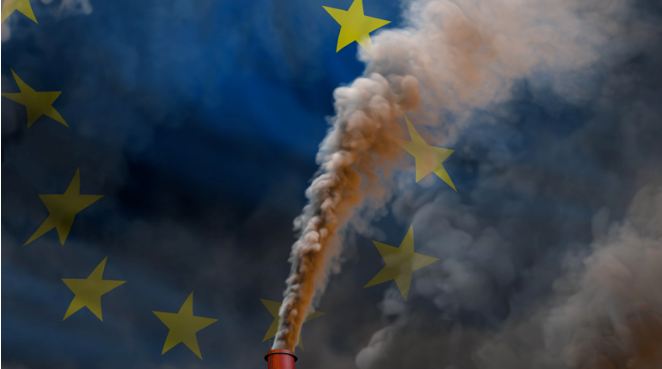4月18日,欧洲议会投票通过了关于欧盟排放交易体系(ETS)的全面改革,包括将航运业和航空业纳入ETS。

据了解,欧盟此前已于2022年年底就航运业纳入ETS达成了初步协议,在此次的正式投票中,500票赞成,131票反对,11票弃权。
根据此前达成的初步协议,航运业被纳入ETS后,在欧盟国家港口间航行的所有5000总吨及以上船舶,要就100%的排放量支付费用;在欧盟国家港口和非欧盟国家港口间航行的5000总吨及以上船舶,要就50%的排放量支付费用。

这一费用的征收会逐步推进。2024年,船公司要为40%的排放量支付费用,2025年达到70%,2026年达到100%。
对于航空业而言,2026年之前,将逐步取消对航空业的免费配额,并促进可持续航空燃料的使用。
ETS是一种限额和交易计划,船公司需要从中购买排放配额,一个配额可以排放一吨二氧化碳。
每年年底,船公司需要交出足够的配额,来支付当年其船舶的碳排放量。未能遵守相关规定的企业,可能会被拒绝进入欧盟港口,直到履行其义务。如果配额超过船公司所需,可以将其出售给其他有需要的公司,或者保留至来年使用。

对于欧盟将航运业纳入排放交易体系,在航运业中一直存在不少争议。
马士基曾公开表示支持,认为这将有助于降低化石燃料与更昂贵的清洁燃料之间的价格差。
也有一些国家认为,欧盟此举打破了国际社会广泛支持的多边框架。区域性或单一国家实施减排措施,会形成割裂的机制,对运输便利带来不利影响。应以国际海事组织(IMO)作为各方谈判平台,制订全球范围内统一实施的温室气体减排措施。
此外,欧洲议会还以487票赞成、81票反对和75票弃权,通过了新的欧盟碳边界调整机制(CBAM)规则。新规则涵盖铁、钢、水泥、铝、化肥、电力、氢等商品,以及特定条件下的间接排放。这些商品的进口商,必须支付生产国支付的碳价格与欧盟碳排放交易体系中碳配额价格之间的差价。
CBAM将从2026年至2034年逐步实施,这也是首次将气候法规纳入全球贸易规则。
来源:宁波航运